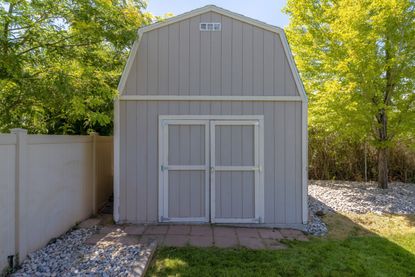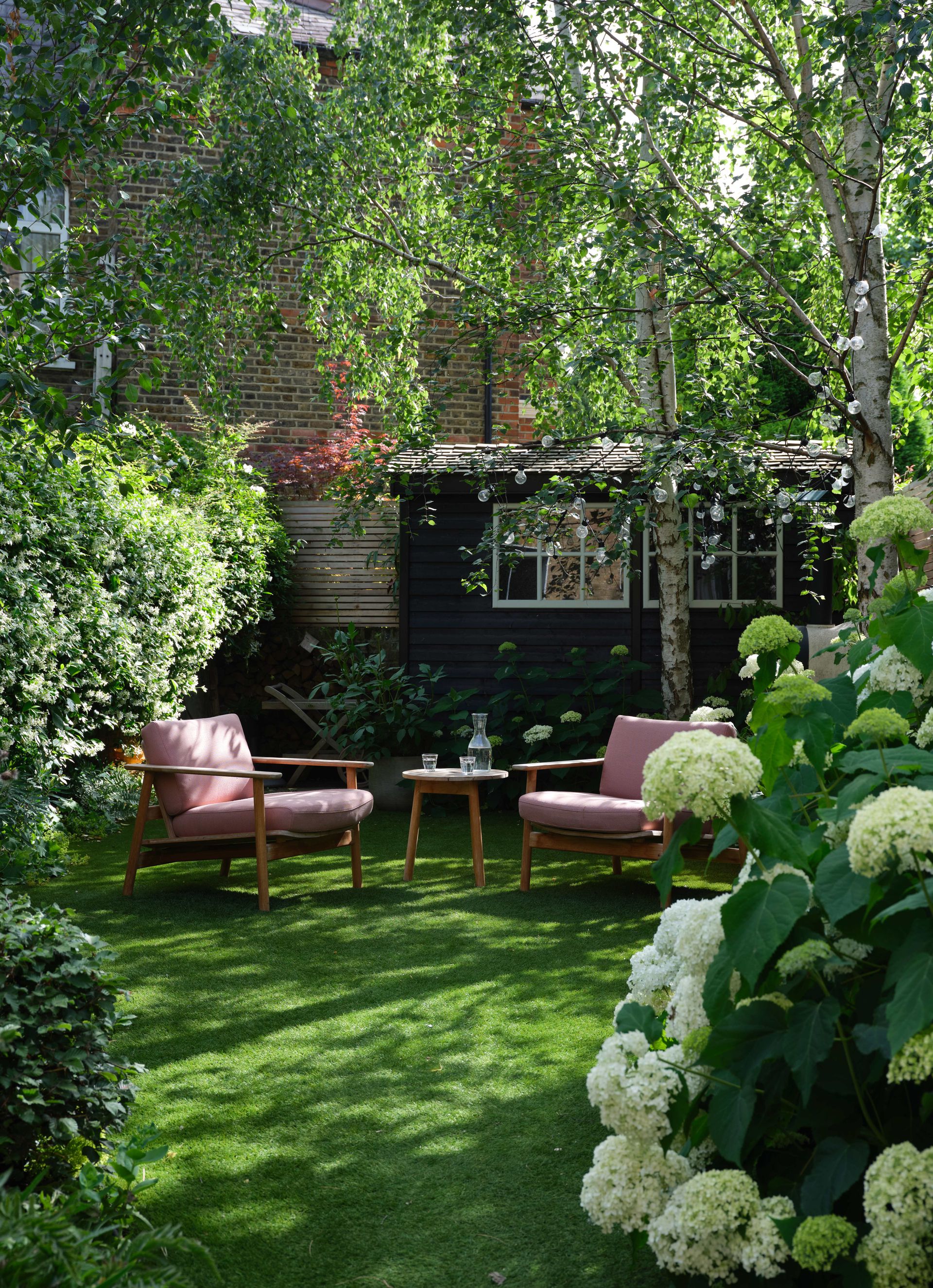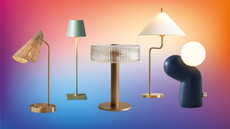5 Things You Should Never Store in Your Shed, According to Experts
It's crucial to be mindful about the objects you choose to store in outdoor spaces


So much thought goes into carefully curating your outdoor space, but many of us neglect to think twice about the objects we stash away in our backyard sheds. It can be tempting to fill it to the brim to keep your yard and home clear from clutter, but in reality sheds are not an ideal home for many household items.
While sheds are an incredibly practical and convenient addition to any homeowner’s life, some items risk suffering adversely from being stored there. It is an outdoor space, after all, so it is more prone to issues like mold, mildew, rodents and unstable temperatures.
We spoke to backyard experts to find out what things you should never store in your shed. Some objects have more delicate dispositions than others, which make them ill-suited to being kept in the shed. It’s possible to strike a balance and make the most of your shed while still steering clear of these common pitfalls.
1. PAINT AND CHEMICALS
The shed may seem like the perfect place to store paints and chemicals, as these aren’t the sort of items that you’d want taking up space in your own home. However, according to Tony O’Neill, gardening expert at Simplifygardening, doing so can actually create a potential safety hazard.
‘Many people don't realize that extreme temperatures in sheds can cause chemicals to degrade or even become hazardous,’ he explains. ‘Paint, for instance, can separate and spoil in these conditions, rendering it unusable. Moreover, fumes from stored chemicals can create a dangerous environment, especially in sheds that aren't well-ventilated.’
2. BULBS AND TUBERS

The gardeners among us know all too well just how much love and care goes into tending to plants and flowers, even before you officially plant them. Bulbs and tubers are living organisms that thrive in a stable environment, which the shed is not. As Whitney Bromberg Hawkins, CEO and Co-Founder of FLWRBOX explains, it’s better to approach storing your bulbs and tubers with caution.
‘I opt to keep spring and summer bulbs and tubers indoors before planting them out, preferably in a sealed paper bag,’ she says. ‘Although many gardeners choose to store theirs in the shed for ease, they can be ruined by moisture, low or high temperatures, and pests. If you're storing your spring-flowering bulbs over winter, you can keep them in the fridge, too!’
And according to Whitney, it’s not just your bulbs and tubers that you need to be wary about, but your gardening tools, too. ‘When it comes to storing your garden tools over winter, I avoid putting my favourites in the shed. During the colder months, your shed can become moist, which may encourage mildew and mould.’
3. PET FOOD, WINE AND PERISHABLE FOOD GOODS

When your kitchen fridge overflows, it can be tempting to store food and drink in the (presumably) colder environment of the shed. However, Tony explains that this is not advisable, as it can attract a host of problems, including rodents and spoiling.
‘Storing pet food in your shed might seem like a space-saving solution, but it can attract rodents and other pests,’ he explains. ‘These critters not only feast on the food but can also damage tools and garden equipment stored nearby. It's better to store pet food in airtight containers and keep them indoors where it's safer and pest-free.’
As well as food for your pets, perishable food and wine should also not be stored in a shed, according to Tony. ‘Sheds are not designed with temperature control in mind, making them unsuitable for items that require stable conditions,’ he says. ‘Fluctuations in temperature can spoil wine, affecting its taste and quality. Similarly, perishable foods can quickly go bad or attract pests.’
4. YOUR OUTDOOR FURNITURE AND ACCESSORIES

Although you might think that keeping your outdoor furniture out of the wind and rain in the garden shed is a wise move, Whitney explains that the conditions of a garden shed could risk damaging your most prized garden possessions.
‘As a rule, I keep anything I would be sad to see damaged, stained, or marked well away from my garden shed,’ she says. ‘ If you don’t have space indoors and are forced to use your shed, it’s worth investing in airtight containers or moisture-absorbing storage bags to keep damp at bay.’
5. ELECTRONICS
Storing electronic equipment that you don’t use on a daily basis in your shed seems to make sense, but in reality, it turns out that the conditions in this environment could be hazardous for anything electrical. Tony advises against storing electronics in the garden shed to safeguard against potential damage to the objects.
‘The humidity typically found in sheds can wreak havoc on electronic devices and components,’ he explains. ‘Moisture in the air can lead to corrosion and short-circuiting, potentially ruining valuable equipment. If storage outside of the house is necessary, consider climate-controlled options.
Tony explains that while sheds are an invaluable tool in a gardener’s arsenal, it’s crucial to be mindful of the objects you’re storing in what is, ultimately, an outdoor space. ‘Not only does this protect our belongings, but it also ensures our gardening practices are safe and environmentally friendly,’ he says.
GARDEN SHED STORAGE BUYS

Price: $32.99
Material: Resin

Price: $19.99
Material: Metal

Price: $35.99
Material: Polyester
Be The First To Know
The Livingetc newsletter is your shortcut to the now and the next in home design. Subscribe today to receive a stunning free 200-page book of the best homes from around the world.

Katie is a freelance writer and MA student at City, University of London studying Magazine Journalism. Katie discovered her passion for lifestyle journalism after finishing her BA at The University of Oxford, when she started pitching to major lifestyle publications and covering various topics from popular culture to wellness. She is a regular contributor at Well+Good, where she writes experiment-based beauty and fitness pieces.
-
 7 Ways Expert Organizers Reduce Visual Clutter in the Kitchen — 'They're Virtually Effortless!'
7 Ways Expert Organizers Reduce Visual Clutter in the Kitchen — 'They're Virtually Effortless!'Follow these expert tips to reduce the cluttered look in your kitchen and create a visually harmonious space perfect for hosting
By Imogen Williams Published
-
 The 12 Best Table Lamps for Reading —I'm a Certified Bookworm (and Shopping Expert)
The 12 Best Table Lamps for Reading —I'm a Certified Bookworm (and Shopping Expert)When it comes to table lamps for reading, I don't mess around. If you're the same, this edit is for YOU (and your books, or course — and good recommendations?)
By Brigid Kennedy Published

